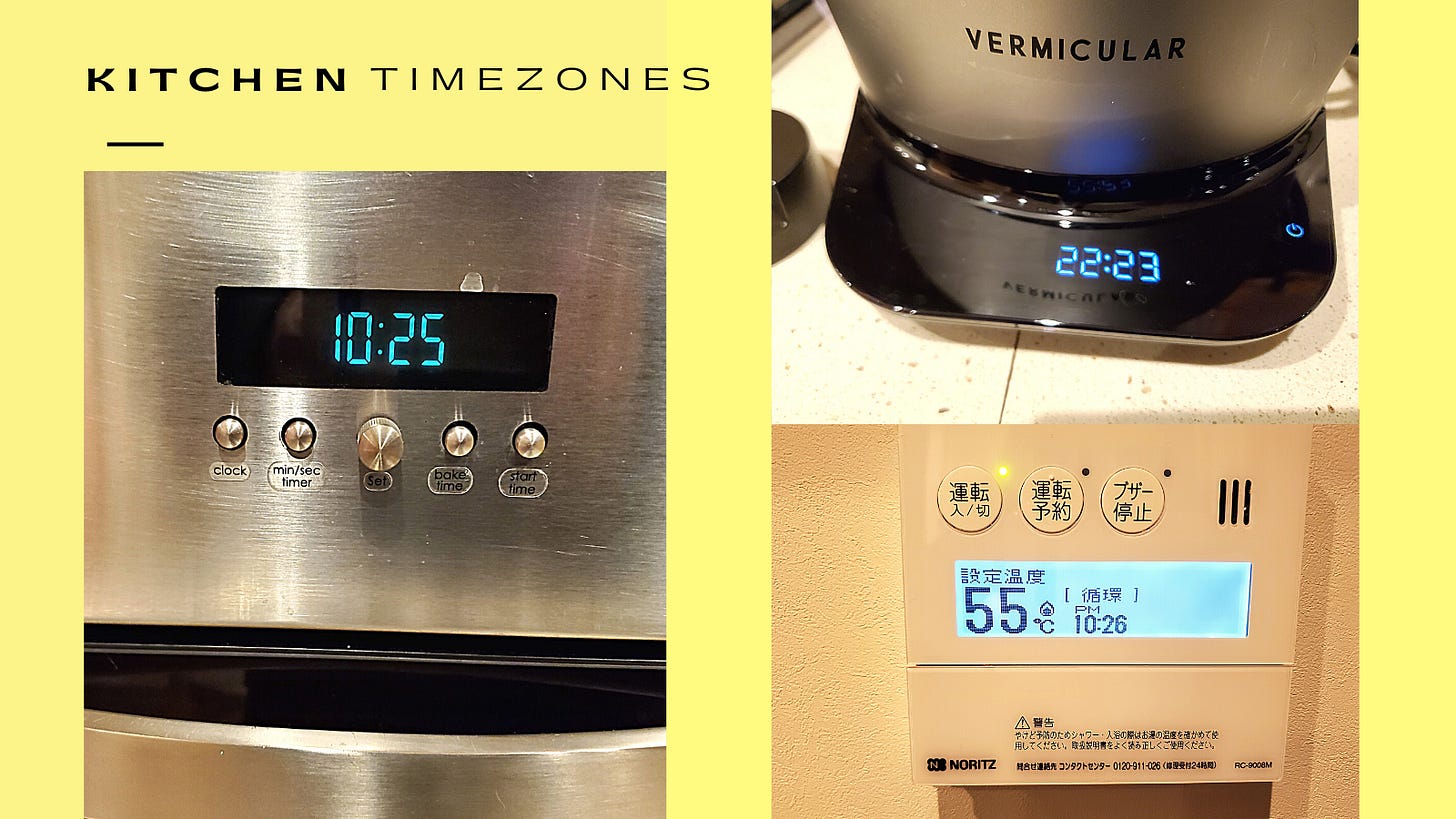The microwave that's never on time
Hello intersectional thinkers 👋
Greetings from Tokyo where my fancy new rice cooker never finishes cooking on time.
Has this happened to you? Your washing machine says 28-minute quick wash, and 30 minutes later, it’s still spinning.
Or it’s 8:30 according to the microwave, but by the time you get into the car a couple of minutes later, it’s already 8:39. And just as you pull up at school/work/the dentist right on the dot at 9am, your phone flickers on with an undeniable 9:04.
What’s worse, a week later, your microwave is 2 more minutes late.
A month later, your microwave might as well live in a different time zone.
Why can’t they stay on time?!
Turns out, these tardy appliances aren’t counting time. They’re counting frequency.
In Japan, (and all of Europe, Oceania, parts of the Middle East and Africa, etc.), the 50Hz frequency means the electric current on the power grid alternates 50 times every second. In the US and Canada, most of South America, some of Southeast Asia, it’s 60Hz. This steady rhythm acts as a metronome for that microwave clock.
It’s a cheap way to approximate time since you don’t have to add a quartz crystal or use a radio controller. But when the frequency is off, time is off.
A 0.004Hz difference in frequency on the grid created due to a change in electricity supply can result in a 6-minute offset in time (as it happened in Europe in 2018 when Kosovo reduced electricity production because Serbians in Kosovo didn’t pay their electricity bill)!
Looking at the repeatedly late provision of my rice from my otherwise delightful electric-cast-iron rice cooker, electricity supply can’t quite keep up in Tokyo right now. We’re bracing for winter here.
What’s the frequency like where you live?

